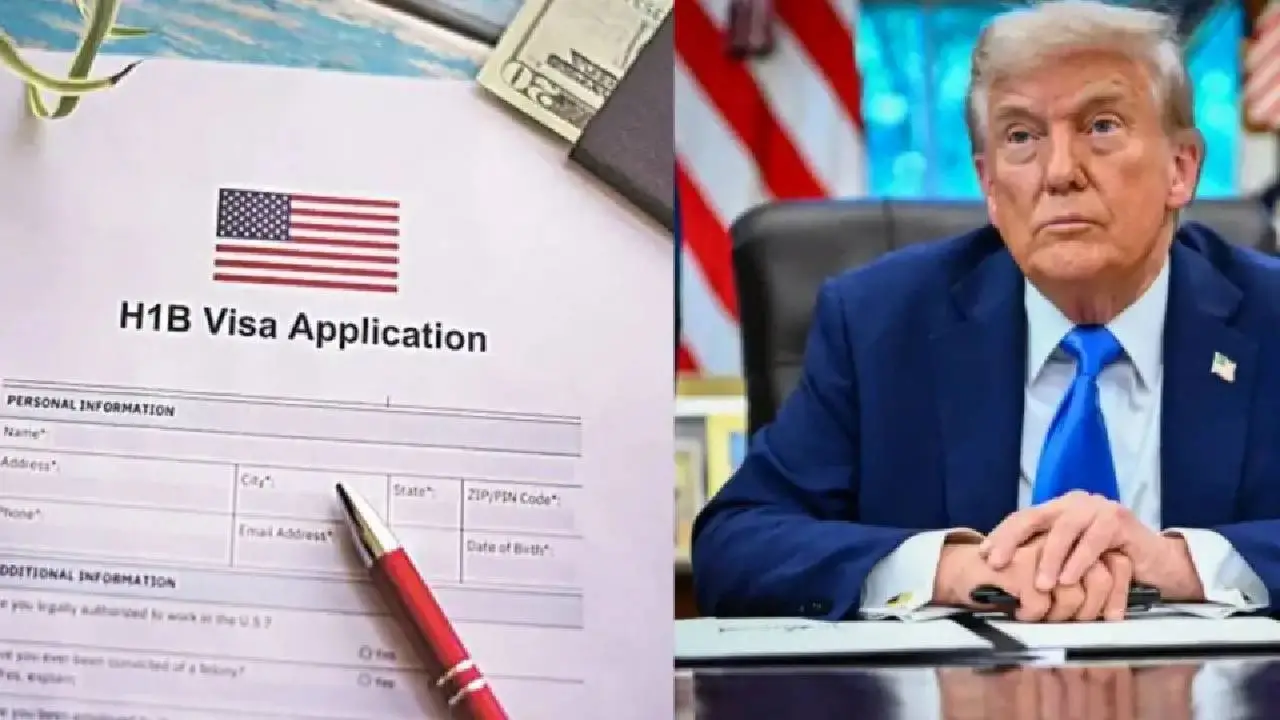
Credit:Top Indian News ( )
International News: Under a new directive issued by US President Donald Trump, the H-1B visa fee has been set at $100,000, nearly Rs 88 lakh. The rule came into force on Tuesday, October 21, creating a major hurdle for skilled workers seeking opportunities in the US. The steep hike primarily affects new applicants filing from abroad. First-time H-1B seekers will now have to bear this unprecedented financial burden. Existing visa holders and students, however, remain exempt from the change.
According to a notice posted on the US Citizenship and Immigration Services (USCIS) website, this fee will be mandatory for new H-1B petitions filed on or after September 21 at 12:01 AM ET, as per a proclamation issued by Trump on September 19. This fee will only apply to new applications; those already in the US on H-1B visas or those changing their status will not be required to pay this fee. However, the rule may pose challenges such as documentation delays, including shutdowns, which could be considered an "extraordinary circumstance."
This is a major setback for India, as approximately 70 percent of H-1B visa recipients are Indians. The new rule will force US companies to reduce the cost of bringing in new foreign employees through H-1Bs, or they may promote offshore/remote models. This could pose a challenge for the Indian IT and technology sector, as H-1B sponsorships could be significantly reduced. However, current H-1B holders or students already in the US (F-1 status) are exempt. They will not have to pay this fee.
The US Chamber of Commerce has filed a lawsuit against the new decision, claiming that the visa system and fees are inconsistent with the law. Several large tech companies, such as Microsoft and Amazon, have begun reconsidering future H-1B sponsorships.
If this new rule remains in place for a long time, it will significantly impact the process of bringing foreign talent to the US, and companies may have to rely on domestic recruitment instead of foreign talent.
For Indian professionals, this signals that planning to find overseas jobs or move to the US may become more complicated-options such as remote work, offshore projects, or other visa options may increase. Meanwhile, F-1 students studying in India and would-be H-1B workers in the pipeline will now be cautious about their next steps, as sponsorship prospects may become increasingly slim.





Copyright © 2026 Top Indian News
